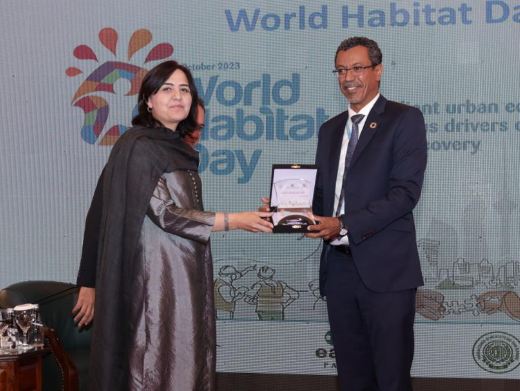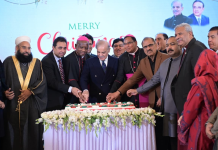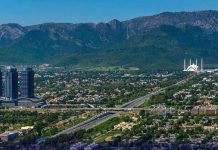DNA
ISLAMABAD, OCT 2: The United Nations Human Settlement Programme (UN-Habitat) and the Aga Khan Agency for Habitat Pakistan (AKAHP), commemorated World Habitat Day 2023 in accordance with United Nations General Assembly Resolution 40/202. This observance served as a moment of reflection on the condition of our towns and cities, as well as an opportunity to explore how urban areas can position their development to better serve their residents. The event was attended by partners and stakeholders from Government of Pakistan, United Nations, foreign dignitaries, INGOs, and academia.
World Habitat Day is observed on the first Monday of October every year, with a range of activities, events, and discussions happening globally on urban sustainability. Known as Urban October, this event provides an opportunity for people worldwide to engage in conversations about the challenges and opportunities arising from the rapid changes in our cities and towns, with the goal to emphasize on the responsibility in shaping the future of our habitats and addressing the impacts of climate change and its induced disasters.

Abdullah Fadil, Acting Resident Coordinator and Country Director of UNICEF Pakistan emphasized in his keynote address a commitment to sustainable urban development. He underscored the importance of urban strategies and policies that enhance cities’ capacities as drivers of socio-economic progress, ultimately leading to the creation of resilient urban economies.

Mr. Jawed Ali Khan, Habitat Programme Manager, highlighted that Pakistan is fortunate to have 30 percent of its population constituting as a “youth bulge.” Harnessing the potential of this youth demographic is essential for advancing urban economic development. For economic growth and recovery to be sustainable,it is crucial to develop a green recovery framework that scales up private and public investments to finance the transition to a climate-neutral economy. Cities all over the world have already embarked on this journey through implementing various models. UN-Habitat believes that these models can be localized and scaled up through the Global Partnership for local Investment, where experiences are shared to build a local finance framework for cities and communities, to help distribute existing funding and finance to where it can deliver the greatest impact.
In her speech, Ms. Nusrat Nasab, Chief Executive Officer of AKAH Pakistan, shared her thoughts on fostering urban resilience as a complex yet crucial endeavor. Building climate-resilient habitats is not just an investment in our future; it’s a commitment to fostering sustainable growth and global recovery in a world shaped by environmental stewardship. The Aga Khan Agency for Habitat plays a vital role in leading efforts to create thriving habitats. By working in partnership with communities, government and stakeholders, employing sustainable practices, and addressing the unique challenges of each habitat, AKAH can contribute significantly to improving living conditions, transforming dreams of climate-resilient habitats into the reality of growth, recovery, and a brighter future for communities living in rural, urban and peri urban areas, paving the way for a sustainable tomorrow.
Dr. Bilal Anwar, CEO of NDRMF, explained that resilient urban economies exhibit adaptability and sustainability in theface of setbacks. Pakistani cities have consistently demonstrated their resilience when confronted with economic challenges, natural disasters, and health crises. Climate change, environmental degradation, and resource constraints are global concerns necessitating local solutions. Resilient cities in Pakistan are leading the way by adopting sustainable practices, investing in green infrastructure, and advocating for environmentally responsible policies.
A workshop was arranged to delve further into the themes of Youth Skill Development and Green Jobs, Urban Planning & Sustainable Economies, Importance of Public-Private Partnership for Resilient Economies, with the speakers Ahmed Kamal, Chaiman Federal Flood Commission, Rizwan Naseer, Secretary Emergency Services Department, Dr. Shafique Khokhar, Director-General of NAVTTC, Mr. Arif Changezi, Chairman Pakistan Council for Architects and Urban Planners; Dr. Noman Ahmed, Dean, Faculty of Architecture and Sciences, NED University of Engineering and Technology; Dr. Shakeel Ahmed Khan, Senior Advisor, Center for Climate and Environmental Research, Institute of Art and Culture; Ms. Almas Shakeer, Executive Director, Shehersaaz and; Mr. Laxman Perera, Human Settlement Officer, Regional Office for Asia and Pacific, UN Habitat.












